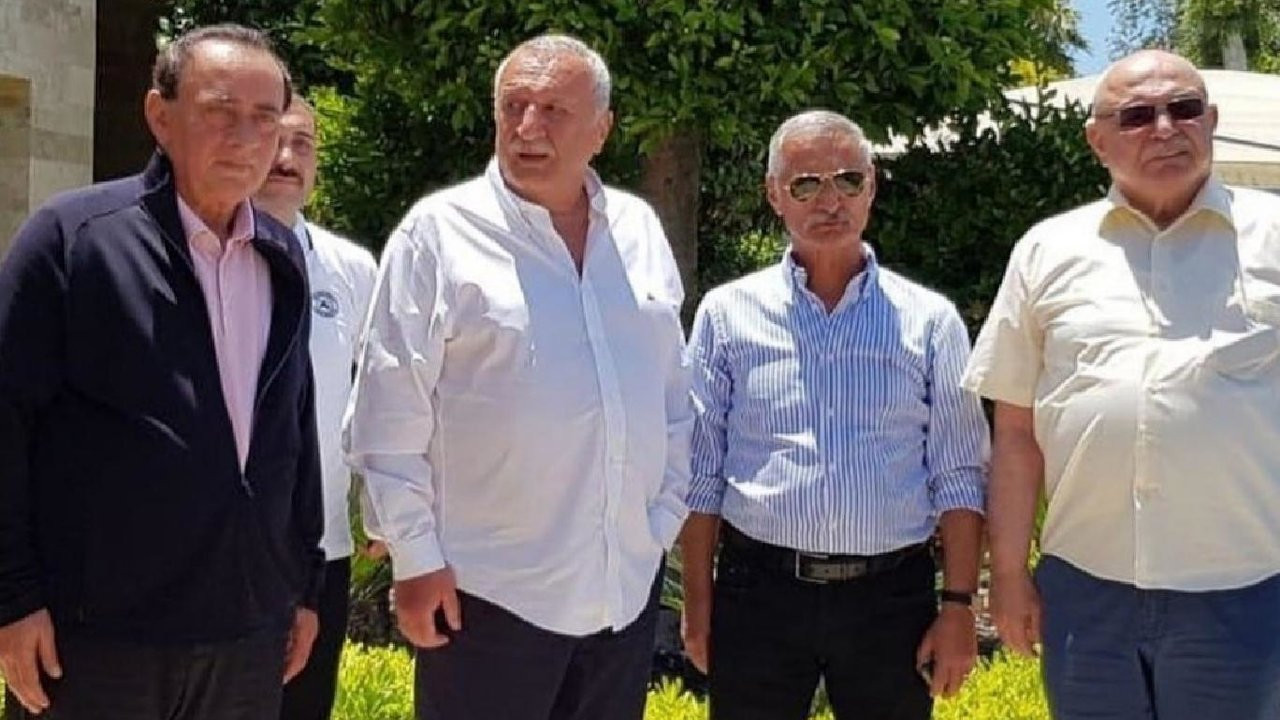A disgusting, vomit-like mucilage has covered the coastline in Istanbul and much of the Sea of Marmara in recent weeks, inadvertently serving as an unmistakable reminder of the high levels of toxicity in state matters in Turkey today.
Over the past few weeks, a well-known Turkish mafia boss, Sedat Peker, has been releasing weekly video drops from his social media accounts, making allegations about corruption, murder, rape and narcotics offenses against some of Turkey’s most powerful figures, including parliamentarians, former top-ranking security officials, and even Turkey’s interior minister, who has filed a complaint against Peker for slander.
Think of “Narcos” on Netflix. Now think of it in real time, with Turkish characters and in the form of weekly videos. That comes close to explaining the spectacle that millions of Turks have grown addicted to as they tune in to hear Peker’s latest revelations from his hotel room in exile, he claims, in Dubai.
Peker is no ordinary mobster. The convicted mob boss has long been a household name in Turkey and lately had reinvented himself as an ally of Turkey’s ruling coalition, even holding mass rallies in support of the government ahead of elections. He was given official police protection and has repeatedly threatened the government’s critics, including a group of academics who called for a return to the peace process with the Kurds in 2016 and were warned Peker would “shower in [their] blood.”
In between references to Sigmund Freud, Islamic theology and Cyrano de Bergerac, Peker talks in these new videos about bad deeds he was allegedly tasked with or claims to know about, such as the killing of a Turkish Cypriot journalist, beating up a parliamentarian who insulted Erdogan’s family, and illicit arms shipments to Syrian jihadists. For reasons that are not fully clear, he now seems to have broken ranks with Turkey’s ruling coalition.
Peker is the ultimate Turkish “deep state” operative gone rogue. It might come as a surprise to Americans that the deep state, once a favorite term of former president Donald Trump’s base, actually originated in Turkey. But Turkey’s deep state is far more serious than most Americans imagine. It refers to a dark, clandestine network of security officials, bureaucrats and organized crime that operates outside official channels and engages in illicit activities — allegedly to protect the interests of the regime. In reality, it has been a way to sustain hard-line, often anti-democratic, security policies.
The Peker episode probably signals a rift inside Turkey’s nationalist camp. But it also highlights a disturbing state tradition that relies upon illegitimate means to fight “enemies of the state.” At different times in the history of modern Turkey, tentacles of the state have targeted communists, minorities, Islamists and Kurdish politicians — depending on who happens to be seen as a threat at the time. Former Turkish presidents Suleyman Demirel and Kenan Evren have both publicly admitted to the presence of the “deep state,” with Demirel famously saying, “When necessary, the state goes outside the routine.” In the 1990s, that meant extrajudicial killings of Kurdish politicians, high-profile assassinations of journalists and mafia intervention in state tenders — often under the rubric of nationalism. These, along with the military’s influence, have often rendered elected governments powerless.
The irony is that Erdogan’s Justice and Development Party (AKP) came to power nearly two decades ago as an antithesis of this, with the goal of cleaning up “gangs within the state,” in the words of Erdogan himself. He managed to curb the influence of organized crime and shady networks for part of his tenure, helped especially by Turkey’s E.U. accession process. But after the failed coup attempt of 2016, Turkey’s strongman president increasingly came to rely upon the former elements of the deep state, making alliances with ultra-nationalists, legitimizing characters such as Peker and inviting former security officials into his administration.
All of this makes it difficult to feel optimistic about Turkish democracy in the short run. Erdogan needs to clean up this scene, but it’s not clear that he can or even wants to.
“I am ashamed to even listen to these videos,” my 75-year-old mother told me on the phone the other day. No doubt, like my mother, many Turks are unhappy about the direction of the country and want change. With Erdogan’s support in decline, polls show that a majority is willing to support an opposition candidate.
But just like the sludge that has blanketed the Turkish coastline, tentacles of Turkey’s deep state seem to have taken politics hostage. They are doing all they can to deprive our democracy of its oxygen, all in the name of regime protection. It is maddening and disheartening, but hardly shocking.
Turkey’s anchor to the West was one of the things that kept its democracy alive — and its deep state under control. Now, with that anchor gone, I worry that the core of the state is rotting. And we all risk drowning in a sea of gooey, disgusting mucilage.
By: Asli Aydintasbas
Source: Washington Post



